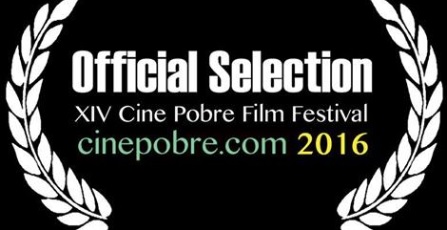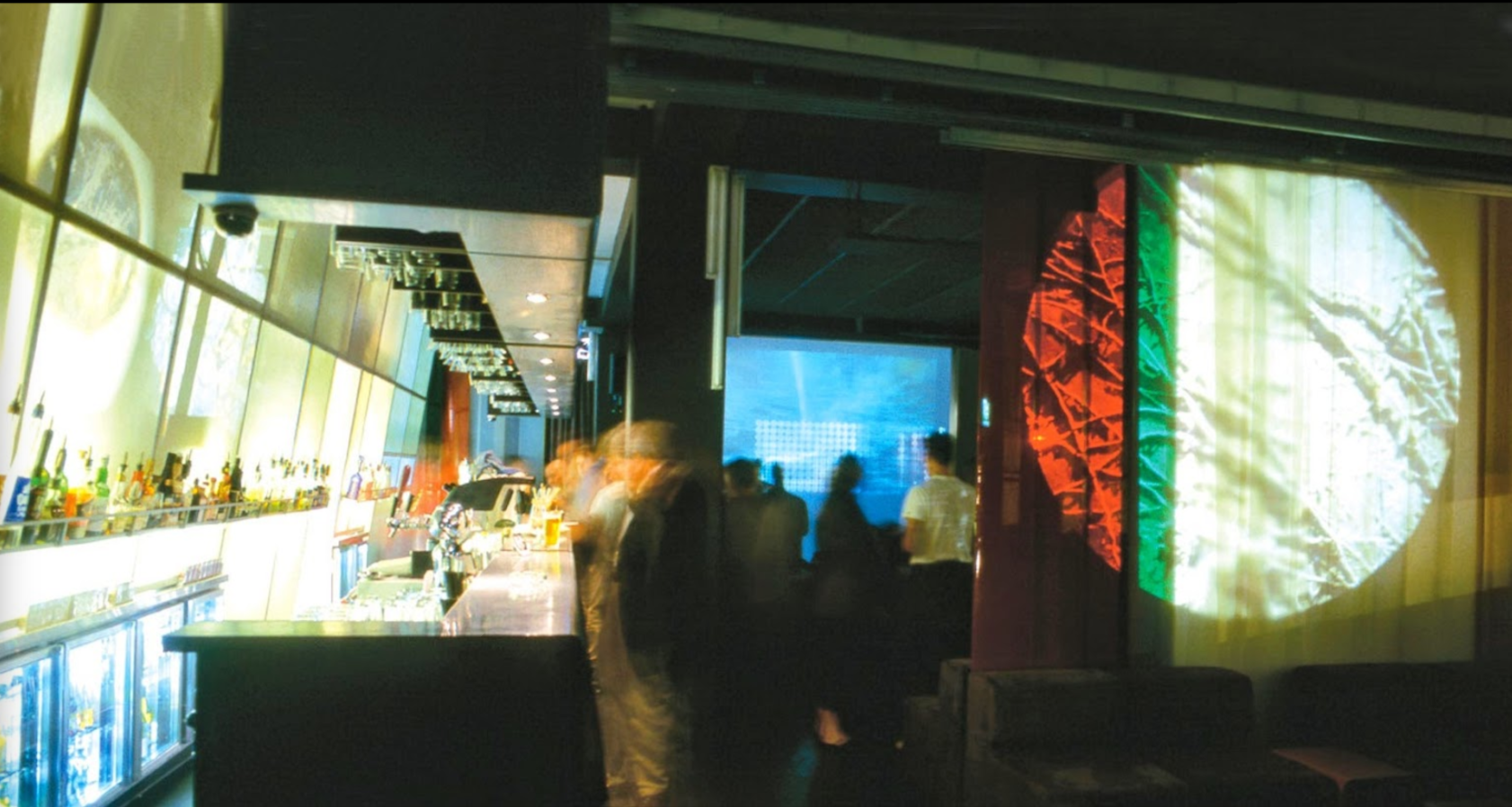Filmmakers: Chatting with the creators of The Watchers
A Two-Part Series
SSP STAFF WRITER: ENTERTAINMENT ZONE: November 22, 2018
Today, the creators, Michael Van Patten, Jason Fedusenko and Edward King III of the award-winning short film “The Watchers” took time out of their busy schedules to sit down with us and talk filmmaking. We were excited to speak with them because of the themes and issues they raised in their film. After a few pleasantries, we got underway.
SSP: Tell us a little about yourself.
MVP: I was born and raised in Southern California. As a teen, my focus was dance and musical theater and I enjoyed a successful career as a performer. Later, I became a dance educator and was on the faculties of universities, colleges, high schools, and private institutions. In 2002 I received my B.A. in English from UCLA. Since then I have been pursuing a career as a creator and screenwriter of projects for film and television.
EK3: Unlike Michael, I didn’t grow up in California. Up until 2000/2001, I called Chicago home. Entertainment was always something in the back on my mind. It wasn’t until I landed in LA that I seriously thought I could take a stab at it. It’s been a great experience so far and I am lucky to have bonded with these two guys over our interest in conspiracy theories. (LAUGHS)
JF : Yeah, if it’s about dystopian conspiracies, water purification techniques or Nikola Tesla, chances are I’m interested, well read on the topic, or have it on my to do list. I’m naturally inquisitive, rebellious against establishment authority and incredibly sensitive. I love politically incorrect material where reverence knows no bounds and always desire a good laugh. I’m pretty sure Jesus had a sense of humor while healing the sick! (THEY ALL LAUGH) Oh and I’m from Miami among other places. (LAUGHS)
SSP: Was there a particular event or time that you recognized that filmmaking was not just a hobby, but that it would be your life and your living?
JF: It was our first pitch, a dance show concept that re-imagined the genre. (Michael nods in agreement) We had a goal of pitching to a major network. It was the first day of shooting and I wanted to throw up and jump off a bridge. I knew I needed more of that! We had incredible talent on set.
SSP: So you filmed a sizzle reel for the dance show?
JF: Yes. I crave a life like that every day! Being creative in the moment, capturing stunning brilliance to be shown for eternity is the closest thing I’ve got to immortality. That is until life extension technology is finally released to the masses by the secret governments trolling humanity for amusement!
MVP: Before we even got to the point of shooting the dance show footage, I realized that filmmaking was my passion when Jason and I began having casual conversations about ideas we had, to morph from creating a dance studio, to creating shows on television we thought we would love to watch. When Jason and I created a dance reality TV series, I was certain filmmaking was for me. It was then I knew where my path lay.
EK3: Oh wow, that’s a good question. I would like to say that I’ve always known that I would end up a filmmaker, but that wouldn’t be entirely true. (LAUGHS) I guess I really knew once I started working as an actor/extra and got to see the filmmaking process. I was on the set of Bandits as an extra and Barry Levinson the director was giving notes to some of the young actors. I got to hear what he had to say to them and I knew I wanted to do that.
SSP: How did you get involved in The Watchers and why?
EK3: Well, I’m a HUGE scifi fan! So, when Jason came to me with the idea, I was like I love it. Let’s do it. It was a no-brainer.
MVP: I became involved in The Watchers after Jason and Ed discussed the idea. Since Jason and I were already working together on ideas, it was a natural fit. Like Ed, I also am a life-long lover of science fiction, so I jumped at the chance to create such a unique project.
JF: Did you hear or read my opening statement? The Matrix changed my life. Mind blown. I want to swim in that ocean and tell a story that goes so far down the rabbit hole you forget what perceived, accepted normalcy is. The Watchers gives me the opportunity to play ball and push myself to the brink. How far can we take this? It seems the origins of humanity might be a great start, but I digress.
EK3: He does that digressing thing a lot. (MICHAEL AND ED LAUGH)
JF: No, but, intrigue, philosophy, danger and all-out pieces of the puzzle that don’t fit, at least at first, is why I want to see this through to the epic franchise that I feel this is. Plus, we had a great proof of concept where we realized we were onto something big with the Watchers Short. I’m not walking away from that.
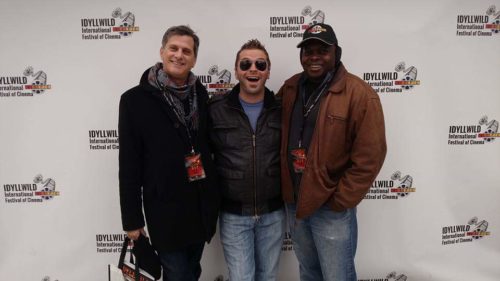
(L to R: Michael, Jason and Ed at the 2017 Idyllwild International Festival of Cinema)
SSP: Was it harder to get started or to keep going? What was the particular thing that you had to conquer to do either?
MVP: The Watchers was easy to create, due to the immense enthusiasm we all had to work on it. In contrast, after shooting the short film, it was a ponderous process in post-production because we were also creating the soundtrack and doing the editing. The hardest part was keeping up the enthusiasm of finishing the project while also working a full-time job.
JF: I need assistants. I love to dream and sketch out the biggest concepts I can. It was harder to keep going when the administrative tangents started to reroute the energy to the mundane. It’s been a great journey, but can’t wait when someone else can carry out the daily tasks while I get to run around set and ask how bigger this moment can really be on film.
EK3: I guess it was harder to keep going after filming was completed. Like Michael and Jason both said the post was hard to get through, but once the film was in the can, the energy and motivation came back because we were on to festival submissions.
SSP: What doubts did you have about your abilities while making The Watchers?
MVP: As a creative person I always have doubts about how the audience will receive my work, but as a confident person, who has a strong belief in my abilities, I went into the project well-prepared and got the results I wanted.
EK3: My greatest doubt was could we get all the shots we needed to make a short film work. We were shooting fast and we only had 4 days to make this happen. Was time on our side or against.
JF: Can you ever tell if people are telling you the truth about your work? Was I being delusional while having an aggressive lust after how big this project could get? Yes and yes. You have to keep going. If you don’t believe it, no one else will. I was taught a long time ago that if you don’t have those moments of panic or desperation, maybe it’s not worth fighting for. When you don’t know what to do next, that moment leads you down the path of what you should do next. It’s a part of the creative process — doubt and confidence can do a lot to strengthen your resolve. That fear though, that’s what you have to push through.
SSP: What’s challenging about bringing a script to life?
EK3: For me, it’s preproduction. There is so much to do and so many details to account for. You miss one thing in prep and you could really jeopardize your shoot and your film. Prep is always a crazy nerve-wracking time for me.
JF: If you are visual person like myself, the hardest part is to write the story without camera shots. Compelling action and dialogue that takes you forward with just words on a page is hard for me to do when I’m lost in the third eye of my imagination. Aside from getting the beast mounted once the story is perfect with distribution and producing, keeping those camera shots out of the script takes effort on my part. Actually filming it though, sweet bliss.
MVP: The most challenging thing about bringing a script to life is finding the right people who assist you in that vision. The perfect location, the best camera angle, the tightest continuity, is all achieved by specialists who believe in that vision and help you create your finest work.
SSP: Seems like you all have different challenges. I bet it was great to have each other to lean on.
MVP: Yes, it was. (EK3 & JF NOD YES.)
SSP: Why did you feel doing the Watchers was important?
JF: The Watchers is an original take on what is going on today, what has happened in the past, even if it is fiction. People want this story as conspiracies are growing at rapid rates in the consciousness of humanity. It’s the forbidden. Why not indulge in this realm we’ve created and take it as far as we can go? This franchise is a lifelong goal, one that keeps expanding. I wouldn’t be satisfied with just a few seasons. The spin off series and movies this has potential for is greater than a quick writer’s option. I want to go along with the life of The Watchers. If I could only work on this project for the rest of my life, sign me up. The universe is pretty expansive with this and I’m hooked. It’s a story I want to tell.
MVP: I feel doing The Watchers was important because I think it is a new spin on the conspiracy theory genre. We have woven famous conjectural theories into a fictional world where these theories are indeed fact.
EK3: I agree with both Michael and Jason. In every conspiracy there is a hint of truth. I feel it is important to reveal that truth and thereby validate that conspiracies aren’t just the result of overactive imaginations.
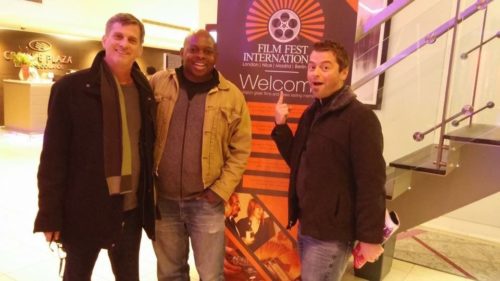
(L to R: Michael, Ed and Jason at the 2017 London Film Fest International)
SSP: What was the most important lesson you had to learn that has had a positive effect on your film? How did that lesson happen?
MVP: Working as a three-person team for the first time was a good exercise in compromise. Three visions of one scene can be overwhelming so we, as a team, had to learn how each other worked, listen to each other, and come up with a unified vision to bring to the set.
JF: In all honesty, accepting the feedback when someone looks at earlier concepts and states, “What’s happening here?” It forces you to go back to the drawing board and re-imagine what you thought was epic. I now believe writing is rewriting and writing and rewriting even more until you yell “medic!” On earlier concepts we got really varied feedback. That has a way of forcing you to differentiate and find better ways to advance the vision. We are not in Kansas anymore.
EK3: Well, there were many lessons. (LAUGHS) But the most important lesson was trusting Michael’s and Jason’s creative eye. Knowing that what they were capturing on film would work and be good. And it was. So, a valuable lesson well learned.
SSP: How have you discovered members of your team and how do you keep the relationship with them strong?
EK3: Can you clarify that question? Do you mean discovering members as in hiring crew? Or do you mean the three of us working as a team and our relationship?
SSP: Both.
EK3: Ok, I’ll take the working as a team and our relationship part. For me, I think like-minded people tend gravitate toward one another. I have known Michael and Jason for years and we always got along great. But I realized that we were together for a reason when we discovered we all had a passion for conspiracy theory and that show Ancient Aliens. (LAUGHS). That connection strengthened our bond.
MVP: As Ed said, we were already friends before we started working together on this project, and had previously worked together on another project, so we already were familiar with each other’s personalities. Over time you learn what specific quirks people have and learn to adapt your approach to them. We’ve all learned how valuable each of us is to the project, and that mutual respect keeps the relationship strong.
JF: Since Michael and Ed, talked about us, I’ll talk other team members. I like passionate people who dare to ask questions and jump on board when they recognize something has sustenance. I’ve been a creative professional almost my entire life. When I meet intelligent, caring and overt risk takers, I try to keep them around. I like crazy, as long as it’s induced by a burning fire within to take a chance. How do I meet people like that? Just keep marching to the path you have to take and they will literally show up unexpectedly.
SSP: Those that make films, know how much they are really collaborations. What makes a fruitful collaboration? What do you do to enhance the collaborative process?
JF: You have to take ego out of it. When working with others who have a stake in the vision, they have to justify why their thoughts add to the concept as do I. Playing well with others is a must! They might have a great idea that overshadows yours. If it works to enhance the complexity, swallow the pride. However, you can’t deny your own creativity if it moves the project forward. Healthy debate is vital to take the work as far as it can go. If you are surrounded by yes people, well, I don’t think that’s healthy.
MVP: To add on to what Jason is saying, a fruitful collaboration is great if you can find a team that communicates well, are able to think out of the box, are adaptable to change, and can accept the need to keep their personal feelings aside. To enhance the collaborative process, I use my logistical skills to keep the process moving forward.
EK3: Jason’s point about taking ego out of the equation is huge. Also, understanding the dynamic and strengths of the team is important. Everybody has a part to play and a contribution to make to the whole. I feel that understanding that is what makes for a great collaboration.
SSP: Tell us about working with Cinematic Artistry and Silver Shadow Pictures.
MVP: Working with CA and SSP was a great experience. CA was very experienced, organized, and helped move along the full schedule. SSP was very supportive of me as a first-time film director and I appreciated so much their belief in me.
JF: Silver Shadow Pictures believed in the project as did Cinematic Artistry. Working with CA was a dream. Very talented people, who I would work with again and again, and even one more times plus a few. SSP came on with equity in the game and a realization of what we were building here — a big concept. It’s been a great partnership ever since. However, I need assistants and it should be part of my future ink moving forward SSP. (LAUGHS)
EK3: I echo Michael and Jason. SSP and CA were both great. They helped put our vision up on screen. I loved the experience of working with them. Learned a lot.
SSP: What are the personal attributes that make for a good filmmaker, and what do you do to foster them?
EK3: Personal attributes? I would say good communication skills, open-mindedness, determination and organizational skills. There are lots of people that work together to bring a film to life. All of whom will have an opinion about something. A few of whom will have their own agenda which might not be the best for the project. You have to be able to communicate with all of them to keep everybody on the same page. You have to be able to listen with an open mind because some of those opinions might add value. And you have to keep your vision safe from those negative agendas and shepherd it to the big screen.
JF: Realize your vision and realize it can always be improved. If you are not pushing yourself every time you write, yell action or show up to a creative meeting, well, what are you doing in this industry? I can’t speak for anyone else, but being complacent bores me. Look where we are now compared to where we were before. It’s not even night and day! What’s better than a compare/contrast of night and day? Whatever that is, that’s where I feel the project already is and will be going.
MVP: The attributes of a good director are creativity, leadership, adaptability, and organization. Creatively, you need vision. You need to command a large cast and crew and be decisive in your decisions. You need to be able to adapt to the ever-changing universe we live in. With so many moving parts on a movie set, an organized director is key.
SSP: How does where you live influence how and what you make, and how do you think LA currently affects your work and process?
MVP: Growing up in Southern California was very influential in my creative growth. My parents were musicians and I grew up in a creative environment, and the proximity of Hollywood to where I lived made it possible for me to believe that I could work in the entertainment industry. Living in LA among many creative people inspires you to create your own unique place.
EK3: Unlike Michael, I didn’t grow up here so the idea of Hollywood was just a notion I got from TV. In the Midwest, the idea of working in the entertainment industry never really came up in my household. It wasn’t until I got to LA that the possibility of making films became a reality. I was meeting so many creative people, actors, directors, etc. that took a shine to me and my work and gave me the courage to go for it.
JP: Living in LA, you have to find your tribe. Everyone talks. It’s those that take action, they are your kind. The brother or sister that takes up arms with you in your quest are the same individuals you will turn to time and time again. You can shoot almost anything almost anywhere. Home is where the heart is, surrounded by people that believe in the project and that you trust with your creative life.
SSP: It is said that there are only six stories. Maybe twelve. It’s all been done before. What do you do to keep it fresh? Is there anything that you can do to subvert the process to keep it original?
JF: Go as big and hard as you can. It all has been done before. The brand, that is ever changing. Is Jupiter Ascending any different than The Matrix? The brands are completely different. Same story. Brands are the lifeblood and spark. You can have two disaster movies that deal with the end of the world. Usually one brand fulfills the audience over the other. Why? One brand was superior with a better execution. To me, what a brand stands for is everything. It is the identity of what people expect to experience.
MVP: For me, to keep things fresh, especially in a creative partnership, I try to come to the table with multiple ideas. If you have plenty of ideas you can practically go anywhere with your storytelling. Subverting the process is tough because the industry has such specific guidelines that if you veer too far in a new direction it can be a tough sell, but if the writing is compelling and entertaining enough a new format can be revolutionary.
EK3: Good question. I think you start out wanting to tell a story, a desire or need to get the story/message out and then you allow it to take form. And not worry about if it’s been done or not because nobody has done it like you, because you are unique. Your vision of it will be your own and thereby it will be a different take on that story.
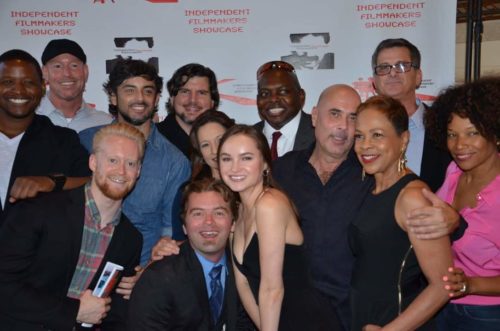
(Michael, Jason, and Ed with The Watchers’ cast and crew at the 2017 Independent Filmmaker Showcase)
SSP: I often say one of the best methods of producing is “engineering serendipity.” Have you encountered serendipity in your work and do you think there is anything that you can do to bring more of it into your creative process? Why or why not, and if so, what is it that you and your team can do?
EK3: Serendipity has always been magical for me. To think about it as something that can be engineered seems a little foreign and manipulated. I like to believe that any time people come together to do something inspired, the element of serendipity is swirling in the air ready to seize that moment of magic. It can happen at any time; during the cast process, on set shooting a highly emotional scene, in the editing room cutting the film together, during sound design; it can happen at any time. That’s what makes it wonderful. When you foster an atmosphere that allows for creativity, you are inviting serendipity into the front door.
JF: If it’s forced, it’s not meant to be. Like Ed said, great things happen all the time around us. I try to constantly be open to that without being stuck in the mindset of fear or self-loathing. Trusting in your actors, trusting in your crew and staff, that is where they are free to add to the moment when they feel empowered by your trust in them. Egos are tough. An environment where anyone on your team free flows their creativity into the moment without fear of backlash, that’s when your project will take new heights. If you squander that force, you’d be better off directing in an echo chamber. It’s digital these days. Do more takes, explore every nuance that comes out. Just make sure your producer likes you before going down that road.
MVP: The most recent serendipitous moment for me happened during the casting of The Watchers short film. An actress came in and requested to read for a part that was written for a male actor, and she was so good we gave her the part. A very happy accident. I think if you keep your mind open serendipity will always happen.
THIS CONCLUDES PART ONE OF A TWO-PART SERIES WITH THE CREATORS OF THE WATCHERS. PLEASE STAY TUNED FOR PART TWO WHICH WILL BE AVAILABLE SOON.
WATCH THEIR FILM THE WATCHERS ON AMAZON OR AMAZON PRIME TODAY!
FOLLOW US ON FACEBOOK!


